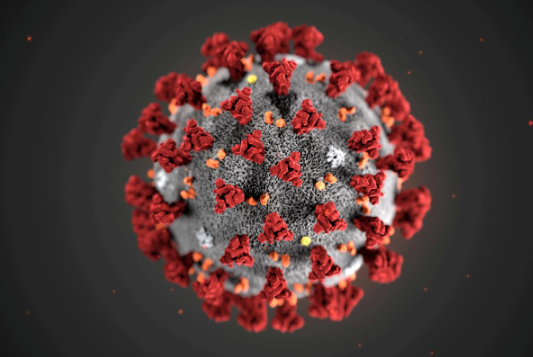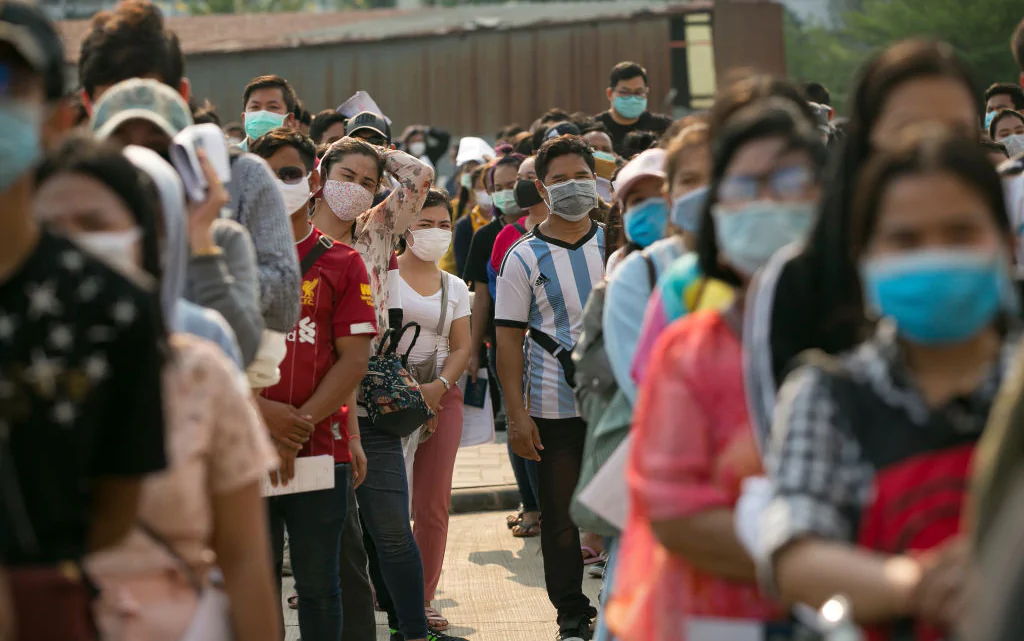The Earth is shaking a little less thanks to COVID-19 outbreak
| Cats can contract the novel coronavirus | |
| Vietnam losing track of Covid-19 transmission, experts claim | |
| Thailand announces nationwide curfew from Friday to curb Covid-19 pandemic |
 |
| Global COVID-19 containment has made the Earth shake less (Photo: Twipu) |
Around the world, seismologists are observing a lot less ambient seismic noise -- meaning, the vibrations generated by cars, trains, buses and people going about their daily lives. And in the absence of that noise, Earth's upper crust is moving just a little less.
Thomas Lecocq, a geologist and seismologist at the Royal Observatory in Belgium, first pointed out this phenomenon in Brussels.
Brussels is seeing about a 30% to 50% reduction in ambient seismic noise since mid-March, around the time the country started implementing school and business closures and other social distancing measures, according to Lecocq. That noise level is on par with what seismologists would see on Christmas Day, he said.
Less noise means seismologists can detect smaller events
| The reduction in noise has had a particularly interesting effect in Brussels: Lecocq and other seismologists are able to detect smaller earthquakes and other seismic events that certain seismic stations wouldn't have registered. |
Take, for example, the seismic station in Brussels. In normal times, Lecocq said, it's "basically useless."
Seismic stations are typically set up outside urban areas, because the reduced human noise makes it easier to pick up on subtle vibrations in the ground. The one in Brussels, however, was built more than a century ago and the city has since expanded around it.
The daily hum of city life means that the station in Brussels wouldn't typically pick up on smaller seismic events. Seismologists would instead rely on a separate borehole station, which uses a pipe deep in the ground to monitor seismic activity.
"But for the moment, because of the city's quietness, it's almost as good as the one on the bottom," Lecocq said.
Seismologists in other cities are seeing similar effects in their own cities.
Paula Koelemeijer posted a graph on Twitter showing how noise in West London has been affected, with drops in the period after schools and social venues in the United Kingdom closed and again after a government lockdown was announced.
Celeste Labedz, a PhD student at the California Institute of Technology, posted a graph showing an especially stark drop in Los Angeles.
Still, seismologists say the reduction in noise is a sobering reminder of a virus that has sickened more than one million people, killed tens of thousands and brought the normal rhythms of life to a halt.
It shows people are heeding lockdown rules
Lecocq said the graphs charting human noise are evidence that people are listening to authorities' warnings to stay inside and minimize outside activity as much as possible.
"From the seismological point of view, we can motivate people to say, 'OK look, people. You feel like you're alone at home, but we can tell you that everyone is home. Everyone is doing the same. Everyone is respecting the rules,'" he said.
The data can also be used to identify where containment measures might not be as effective, said Raphael De Plaen, a postdoctoral researcher at Universidad Nacional Autónoma de México.
"That could be used in the future by decision makers to figure out, 'OK, we're not doing things right. We need to work on that and make sure that people respect that because this is in the interest of everyone.'"
 | Overseas Vietnamese communities in EU unite in COVID-19 combat Overseas Vietnamese people were quick to respond, mobilize to help out, with the aim of slowing the spread of COVID-19 in their host countries. |
 | Foreigners unable to leave Vietnam due to COVID-19 allowed to extend temporary residence permit Vietnam will extend temporary residence permit for foreigners who are unable to leave because of travel restrictions or quarantine order related to COVID-19. |
 | Australian scientists test potential Covid-19 vaccines on ferrets Researchers of Commonwealth Scientific and Industrial Research Organisation (CSIRO) in Australia have tested two potential coronavirus vaccines on ferrets to determine whether the vaccines may ... |
Recommended
 World
World
Pakistan NCRC report explores emerging child rights issues
 World
World
"India has right to defend herself against terror," says German Foreign Minister, endorses Op Sindoor
 World
World
‘We stand with India’: Japan, UAE back New Delhi over its global outreach against terror
 World
World
'Action Was Entirely Justifiable': Former US NSA John Bolton Backs India's Right After Pahalgam Attack
Popular article
 World
World
US, China Conclude Trade Talks with Positive Outcome
 World
World
Nifty, Sensex jumped more than 2% in opening as India-Pakistan tensions ease
 World
World
Easing of US-China Tariffs: Markets React Positively, Experts Remain Cautious
 World
World










